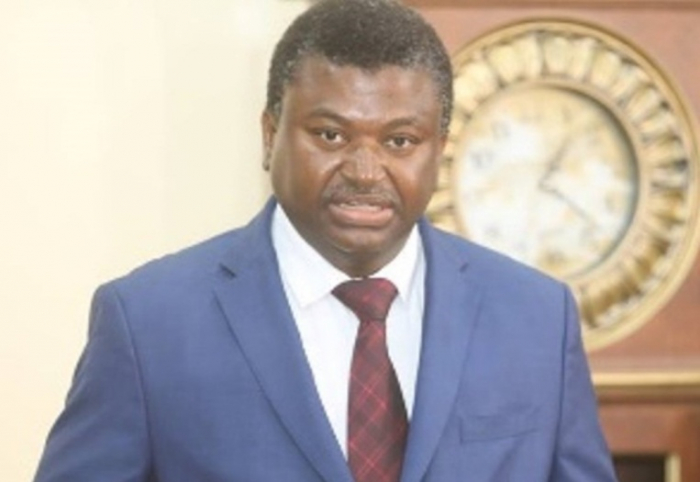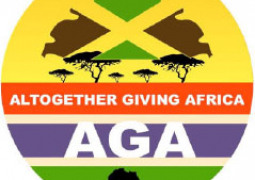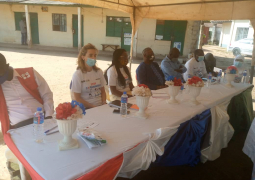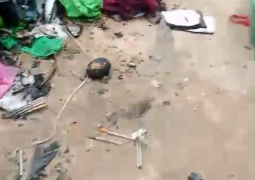
The 363rd COVID-19 situational report indicates that The Gambia has registered 9,715 cases; 78 active cases; 9,315 people recovered and 322 patients died since the disease entered the country on 17th March, 2019.
The report further revealed three (3) new COVID-19-related deaths registered, bringing the total to 322 (Crude Case-Fatality Ratio, 3.3%). A total of 17 new cases were registered (cumulative cases, 9, 715.
It could be recalled that The Gambia registered its first COVID-19 on 17th March, 20120, when a lady in her 20s tested positive following her return from the United Kingdom. This was after a Bangladeshi male national had earlier tested positive when he travelled to the country.
Subsequently, President Adama Barrow-led government suspended all public gatherings; imposed temporal closure on educational institutions and houses of worship; reduced the normal capacity of commercial vehicles and reduced the operational hours of markets.
However, at some point in 2020 most of the COVID-19 regulations such as ban on public gatherings was lifted due to minimise cases. However later in 2021, The Gambia would experience a second wave of the deadly disease.
Despite gains registered thus far, public gatherings such as political rallies are expected to continue in anticipation of the country’s general elections slated for December 4th 2021.
In an exclusive with The Point on Saturday, Omar Sey, former minister of Health of The Gambia said ‘if preventive measures are not put in place during political rallies, more COVID-19 cases could be registered.
He justified this claim to overcrowding, which he added, is one of the factors for the spreading the virus among people.
“We all know that one thing that spreads the disease is overcrowding because someone may have the virus without symptoms and the person would be shouting with droplets coming from his or her mouth. This is the danger we have because some people do not know their health status,” he said.
The Jammeh era health minister indicated that political rallies cannot be stopped as the country is an election year, but that there is a need for political leaders to work with public health officials at the grass root level to make sure COVID-19 safety precautions are adhered to in all political rallies.
Political leaders, he observed, should have containers of water with hand sanitizers for supporters at entrances of all political rallies, adding that, they should also encourage their supporters to wear face masks properly to avoid spreading the disease.
“The most difficult thing is social distancing but they have to be encouraged to distance and avoid hand shaking. That can help in containing the virus,” he advised.
Sey was the health minister of The Gambia when Ebola hit some West African countries. Therefore, he advised the health ministry through public health officials to use risk communication, community engagement and the involvement of strategy in every region.
“Let politicians work with public health officials at the regional level to put health measures in place,” he added.
He went on to advise the public to adhere to the Ministry of Health and World Health Organization recommendations and to take the COVID-19 vaccine.
Doudou Jah, is the deputy spokesperson for the former ruling Alliance for Patriotic Reorientation and Construction (APRC). For him, his party has been following protocols and being very obedient to laws of the land.
Jah explained that his party would ensure supporters wear face masks and have hand sanitizers.
“I believe it will be very difficult to observe social distancing during campaigns. It is always crowded and very difficult to control the amount of people that will be storming political rallies.”
He urged all APRC supporters to adhere to the COVID-19 safety precautions to avoid the spread of the disease.
Gibril Gando Baldeh, senior risk communication and community engagement at health communication unit, Directorate of Health Promotion and Education at the Ministry of Health (MOH), said health authorities are currently planning to come with a regulation specifically for political rallies that would help in containing the COVID-19 pandemic among party supporters.
“MOH will come out very soon to address issues of political rallies and what measures that should be followed as far as political rallies are concerned,” he said.
The ministry, he added, is having consultations with partners such as political leaders, the Independent Electoral Commission (IEC) and Civil Society Organizations to come out with regulations regarding political rallies.
He thus advised all and sundry to adhere to WHO and MOH COVID-19 safety measures and also take the jab to prevent spread of the disease.
Aminata Jaiteh, a young feminist leader, said women can minimise physical activities and always wear face masks to protect themselves.
She therefore encouraged women to participate in online campaigns on digital platforms when they have the access, noting that for women and children to be protected during this time, there is a need to invest in personal protective equipment for women and girls by the government.
“Political parties can consider hosting rallies in smaller groups at different intervals,” she also said.
Jaiteh calls for more awareness among women and girls about the dangers of the covid-19 pandemic to stay alert.
This story was produced with support from Journalists for Human Rights (JHR), through its Mobilizing Media in the Fight Against COVID-19 in partnership with Mai-Media and The Point Newspaper.




